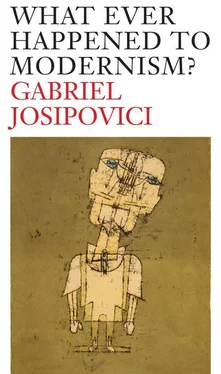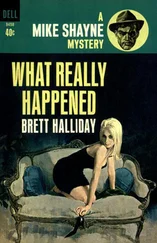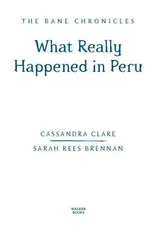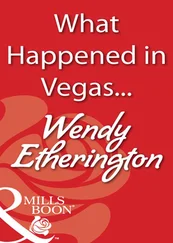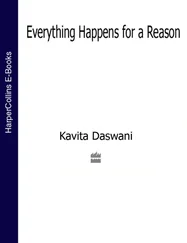In order to understand that there are good reasons for the difficulties they encountered in getting their work not just published but written, and that these difficulties are part and parcel of what makes them rewarding to read, we have to try and see Modernism not from without, as Gay, Corbett, Goldstücker and the post-Modernist choose to see it, but from within. That is the task of this book.
I. THE DISENCHANTMENT OF THE WORLD
1. The Oracles Are Silent
When does Modernism begin? That seems an innocent enough question, but it is actually the source of many of the problems we have in coming to terms with it. Since the passages I quoted in the last chapter from Mallarmé, Hofmannsthal, Kafka and Beckett all fall between the years 1850 and 1950 the temptation is strong to date Modernism in that hundred-year period. This is certainly when it flourished and when its manifestations were so prevalent that no-one could ignore it. The danger in seeing it like that, though, is that Modernism is thereby turned into a style, like Mannerism or Impressionism, and into a period of art history, like the Augustan or the Victorian age, and therefore as something that can be clearly defined and is safely behind us. I, on the other hand, want to argue that Modernism needs to be understood in a completely different way, as the coming into awareness by art of its precarious status and responsibilities, and therefore as something that will, from now on, always be with us. Seen in this way, Modernism, I would suggest, becomes a response by artists to that ‘disenchantment of the world’ to which cultural historians have long been drawing our attention.
That phrase was given currency by the sociologist Max Weber in the early years of the twentieth century. In The Protestant Ethic and the Spirit of Capitalism (1904) and in later essays, he argued that the Reformation was part of a historical process ‘the disenchantment of the world’ ( die Entziehung der Welt ), whereby the sacramental religion of the Middle Ages was transformed into a transcendental and intellectualised religion, which led to the disappearance of the numinous from everyday life. In England this shift has mainly been seen as what the authors of 1066 and All That would have called a Good Thing, since it led us from an era of superstition to our modern era of common sense and scientific understanding, from the darkness of the Middle Ages to the light of the Enlightenment. A monument of English Renaissance history, Keith Thomas's Religion and the Decline of Magic (1971) is a fine example of this attitude. ‘Despite the studiously agnostic, anthropological spirit in which he conducted his inquiry’, a recent historian has written about this, ‘he … subscribed implicitly to the view that the Reformation helped to emancipate the English populace from a “superstitious” understanding of the world around them, from assumptions which, he wrote in the foreword, were now “rightly disdained by intelligent persons”.’ And, despite the splendid work of writers such as Eamon Duffy, who for over twenty years has been attempting to rescue late medieval culture from the contempt of (largely Protestant) historians, this view has remained the common one in the English-speaking world.
This is not surprising, since it feeds into another powerful myth, that of the Renaissance as the triumph of the individual after centuries of subservience to authority and tradition, centuries of being bound to the yoke of religion and superstition. Both these myths, the myth of light coming out of darkness and the myth of the emancipation of the individual, were of course first propagated by Protestants and Humanists themselves, and both have been shown to be, if not downright lies, at least only one side of the story, but the assumptions behind them live on in our culture as obvious truths, repeated every time religion is criticised as mere superstition or when a caption to a painting in a gallery draws attention to the lifelikeness of what is being depicted, implying that ‘lifelikeness’, that Renaissance ideal, is what all art aspires to.
Things are rather different in the German tradition. There cultural analysts such as Erich Heller, Hans-Georg Gadamer and Hans Blumenberg have sought to bring out what has got lost as well as what has been gained by the transition from older ways of thinking to modernity. This is perhaps not surprising when we remember that the phrase, ‘the disenchantment of the world’ is originally Schiller's, and that all Schiller's mature critical writing is an attempt to come to terms with what he eloquently describes as the disappearance of a glorious earlier age (he is thinking, in somewhat idealised terms, of the Greeks), an age in which man was simply a part of the world, while now he stands outside, looking in, aware only of what he has lost. The feeling is ubiquitous among the Romantics, especially the German Romantics; perhaps its most eloquent expression is to be found in Hegel's Phenomenology of Spirit (1807), where the philosopher explores what he calls ‘the unhappy consciousness’. ‘Trust in the eternal laws of the gods has vanished’, he writes,
and the Oracles, which pronounced on particular questions, are dumb. The statues are now only stones from which the living soul has flown, just as the hymns are words from which belief has gone. The tables of the gods provide no spiritual food and drink, and in his games and festivals man no longer recovers the joyful consciousness of his unity with the divine. The works of the Muse now lack the power of the Spirit, for the Spirit has gained its certainty of itself from the crushing of gods and men. They have become what they are for us now — beautiful fruit already picked from the tree, which a friendly Fate has offered us, as a girl might set the fruit before us. It cannot give us the actual life in which they existed, not the tree that bore them, nor the earth and the elements which constituted their substance, not the climate which gave them their peculiar character nor the cycle of the changing seasons that governed the process of their growth. So fate does not restore their world to us along with the works of antique Art, it gives not the spring and summer of the ethical life in which they blossomed and ripened, but only the veiled recollection of that actual world.
Critics and cultural historians are sharply divided into those who find remarks of this kind illuminating and those who think them either arrant nonsense or the expression of a purely private anxiety. But the position you adopt does not depend simply on faith. Those, including myself, who find remarks like Hegel's or Schiller's illuminating, do so in part because they help us to recognise that this sense of somehow having arrived too late, of having lost for ever something that was once a common possession, is a, if not the , key Romantic concern.
But is this not merely setting back the onset of Modernism by half a century? If you wish to see ‘the disenchantment of the world’ as a key ingredient in Modernism, a critic of this line of thought might argue, is not what you are doing merely eliding Modernism and Romanticism? To pose these questions is once again to misunderstand what is at issue. It is to deny that Hegel's present tense, his insistent ‘now … now … now …’, is still the present tense for us — i.e., that we still live in the world Hegel so movingly describes. That, I suspect, is what divides English and continental philosophy, and that is the task of this book: to try to bring home to readers the sense in which Hegel's present tense is still present for us.
There is a further point. To see Modernism as beginning in 1800 rather than 1850 is short-sighted in another way. T.S. Eliot famously located a ‘dissociation of sensibility’ in the mid-seventeenth century, while cultural critics like Heller and Blumenberg, perhaps taking their cue from Weber, would take it back even further, to the early sixteenth century and the coming of Protestantism. Heller even, and only half in jest, once pointed to a moment in 1529 when, he said, the problems of modern poetry began. The occasion was a disputation in the ducal castle in Marburg between Martin Luther and Huldrych Zwingli, who had been brought together by Philip of Hesse in an attempt to heal the splits that were beginning to show in the ranks of the Reformers less than a dozen years after Luther had nailed his theses to the Castle Church doors in Wittenberg and unwittingly set the Reformation in train. The subject of dispute was the nature of the eucharist: were the bread and wine administered by the priest, as Luther, in this still a man of the Middle Ages, insisted, really the body and blood of Christ, or were they, as the Humanist Zwingli maintained, merely symbolic? Zwingli could not believe that Luther, who had challenged the authority of pope and councils and denounced pilgrimages and purgatory as superstitious practices designed to make money for the Church, could really believe that Christ, who sat in heaven on the right hand of God, could also be present in the wine and bread used by priests all over Christendom every day of the year. But Luther, for his part, clung to his belief: a cultured man like Zwingli might laugh, but he knew in his soul that the mystery of the eucharist was real, that the ritual was not designed merely to bring to the memory of the participant that first sacrifice of Christ; it was actually to partake, in some way, in that sacrifice.
Читать дальше
